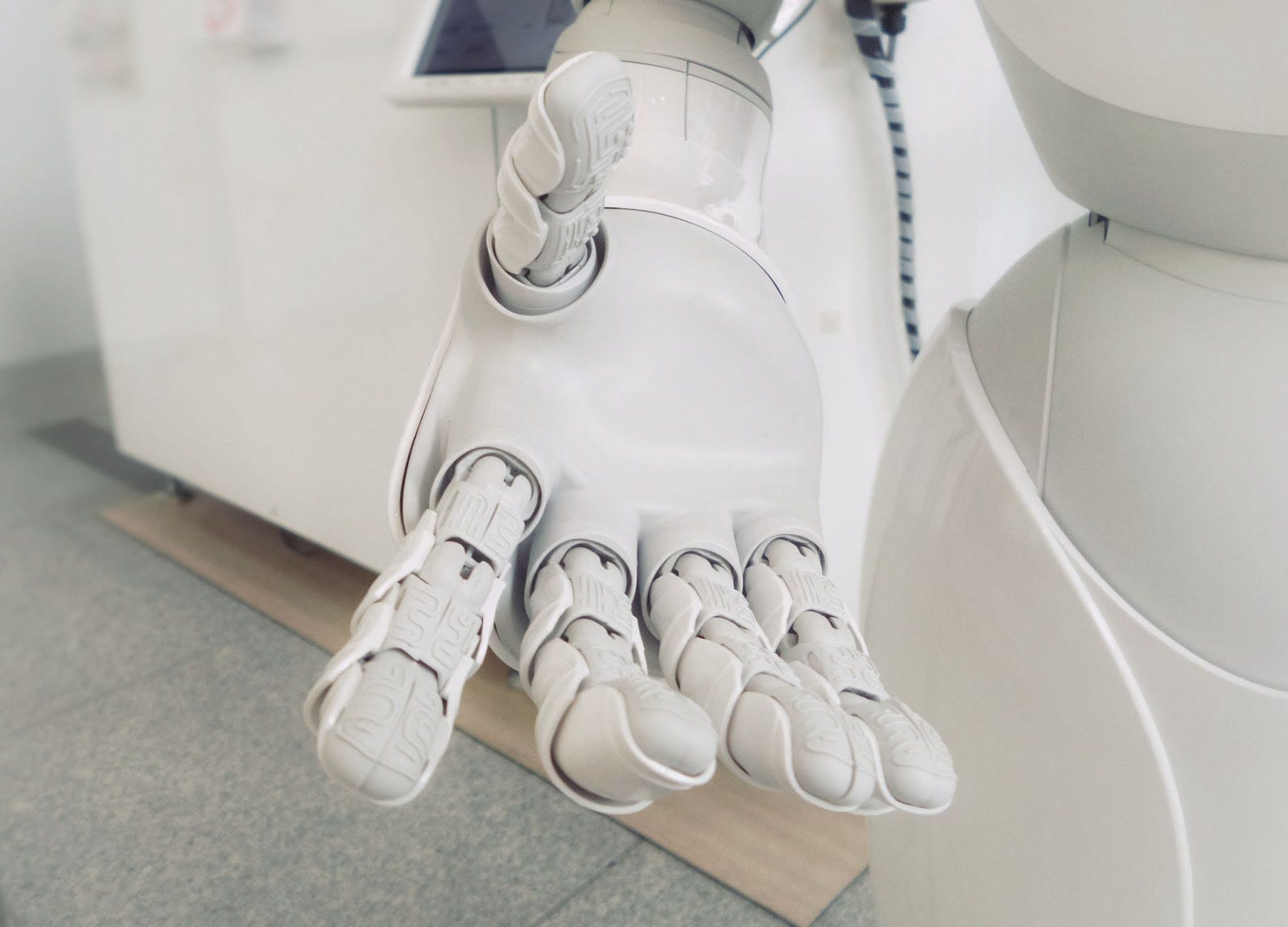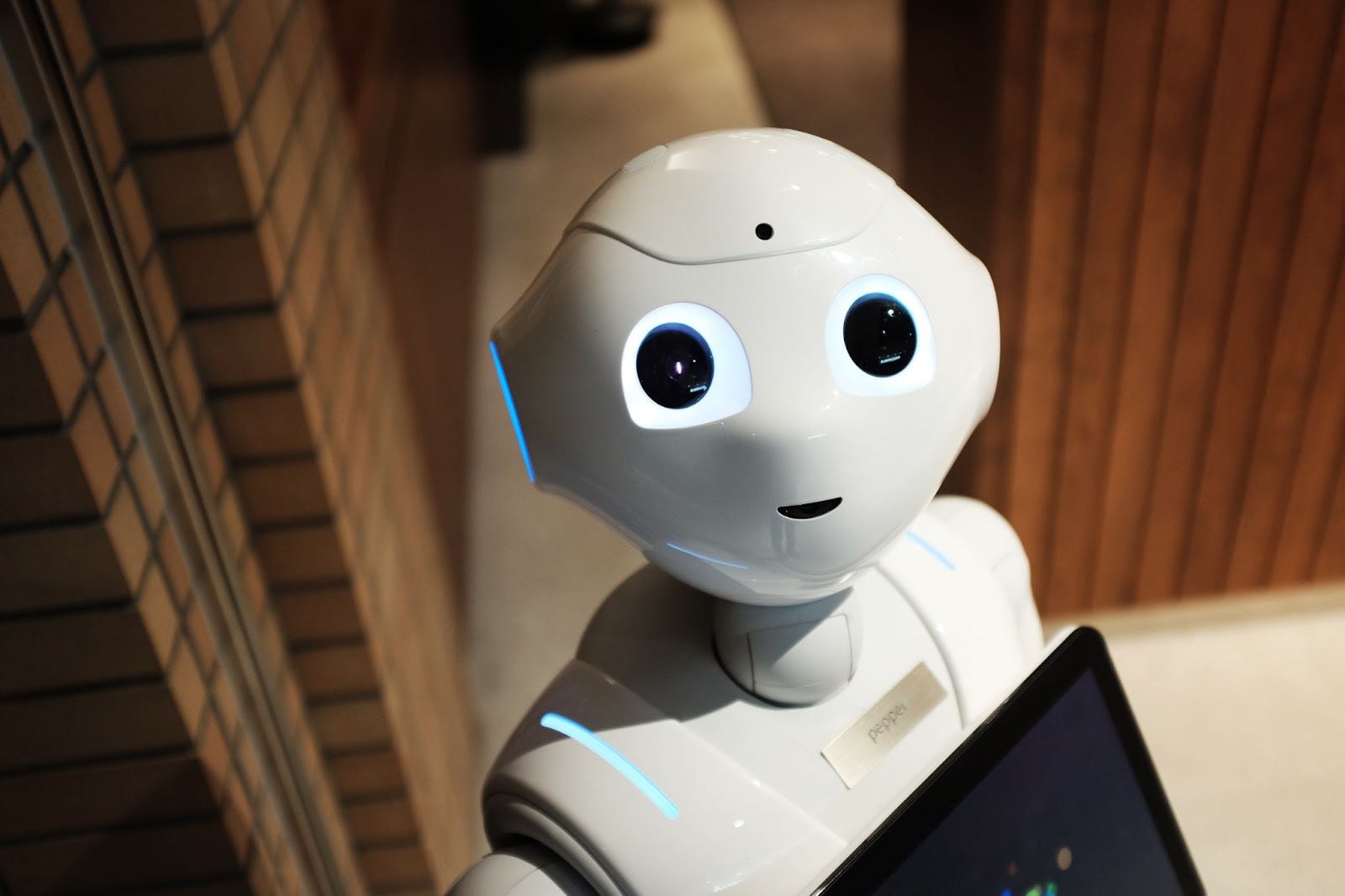Artificial Intelligence (AI) is ruling many industries worldwide. There's so much AI can do that it's hard to find something that doesn't benefit from this advanced technology.
It's a tool capable of benevolent and malevolent programs and applications. Everyone is eager to adapt to this novel technology because of its many excellent benefits in a wide range of industries.
The AI revolution has unveiled future prospects and hurdles that need to be discussed in detail.
AI Revolution: Recent Advancements In AI Technology
AI has been advancing exponentially, especially in the last few years. New features and benefits are constantly being added to the existing technology to bring out the best it can provide users.
Here is a look at advancements in AI concerning different industries like healthcare, education, marketing, customer service, transportation, banking, and HR and the challenges of each.
Future Of AI In Healthcare
The future of AI in healthcare looks very bright, with breakthroughs emerging frequently. AI in healthcare has paved the way for faster and more accurate diagnoses of various health conditions, personalized treatment plans, and enhanced patient outcomes.
The latest technology has also enabled the analysis of huge amounts of data, including electronic health records, genetic data, pattern identification, medical images, and the development of innovative treatments.
AI advancements in healthcare also extend toward personalized drug discovery and robotic surgery.
AI Challenges In Healthcare
One of the most significant challenges in using AI in healthcare is data management. Healthcare data is vast and often incomplete. It could lead to incorrect diagnoses and conducting treatment without proper implementation.
AI learns from the fed data, which leads to high chances of incorrect values being calculated.
Future Of AI In Education
AI in education is immensely beneficial as it assists students, teachers, and administrators, especially by avoiding the necessity to do redundant work and repetitive tasks.
It also helps enhance the quality of education with visualization effects that make it more interactive and effective. It also paves the way for personalized learning for students.
AI has had the power to influence even fields like performing arts, specifically in the context of online learning and acting classes.
Online acting classes have become more popular in recent years due to the global pandemic, where aspiring performers have had to adapt to changing circumstances to enhance their skills.
AI Challenges In Education
Challenges include the high cost of AI tools and ethical concerns. The cost may be unbearable at this level, whereas the system could be manipulated in a way that leads to doubt about how ethical AI is to use in the education sector.
Future Of AI In Transportation
The major expectation of AI in transportation is self-driving cars, trucks and other heavy vehicles. These vehicles are not entirely self-driven and work under driver supervision.
Uses of AI in transportation include enhancing navigation systems, creating autonomous cars, and optimizing traffic flow, making driving on the road more efficient.
AI Challenges In Transportation
Although AI-led autonomous transportation could drastically reduce the number of road traffic incidents, it comes with real-world challenges. These are unintended outcomes and misuse, like cyber attacks. It is also a costly adaptation for many organizations.
Future Of AI In Customer Services
AI in customer services is booming with features like virtual assistants, chatbots, and natural language processing (NLP).
AI-led customer services deliver faster responses and, as a result, enhance customer experience.
The future of AI in customer services shows great positivity in enabling organizations to connect much better with their customers with effective response rates.
AI Challenges In Customer Services
Although they are useful, chatbots do have some drawbacks. They lack qualities like empathy and the human touch.
Chatbots and virtual assistants don't understand the customer's thoughts, intent, emotions, and tone, so they may be unable to respond empathetically.
Future Of AI In Marketing
AI has great scope in the marketing sector. In marketing, AI consists of customer behavior analysis using prediction-based models to understand their needs.
AI technology helps enhance marketing operations and reach the intended audience as required.
The future of AI in marketing will include fraud detection, augmented reality, and WhatsApp chatbots to provide enhanced services to the customer.
AI Challenges In Marketing
Using AI in marketing could be highly costly for organizations to integrate into their marketing operations.
Other challenges include a lack of trust, a lack of talent, and job losses.
Future Of AI In Human Resource (HR) Management
AI can greatly benefit HR-related tasks such as candidate screening, recruiting, and conducting performance evaluations.
It can also provide the correct answers to candidate and employee queries, reducing much of the work HR personnel must do.
AI can provide an excellent approach to enhancing employee engagement and creating opportunities for growth and innovation.
AI Challenges In Human Resource Management
Along with many benefits for HR personnel, AI comes with a few challenges. These challenges exist primarily due to the human involvement required in certain parts of HR operations.
AI challenges in HR include lack of trust, AI skills in HR personnel, data privacy, reliability and validity of AI decision-making, and return of AI data investment.
Future Of AI In Banking
AI can be extremely beneficial in the banking industry by analyzing large amounts of data. AI can also identify patterns in customer behavior and provide insights into credit risk and investment opportunities.
AI promises to create accurate financial services that are efficient and easier to access.
AI Challenges In Banking
There are a few ethical concerns regarding the use of AI in the banking and finance industry, including bias in decision-making and job displacement.
AI systems in banks must be unbiased, fair, and transparent. Banks are subject to strict regulatory compliance, which could make the use of AI a challenge.
Myths Related AI
Here are a few of the common myths related to AI:
- AI is as intelligent as humans.
- The accuracy of AI is dependent on the training data.
- AI is a vital emerging component.
- AI will replace all the work that requires human intervention.
- AI will enslave humans.
The Immediate Future Of AI
The immediate future of AI looks very promising, with many excellent features and benefits added across many industries.
AI requires technical expertise to find solutions, which means that proper training must be given to the required personnel.
However, ethical concerns and AI's impact on society cannot be taken lightly. These concerns include based views, data protection issues, and accountability of wrong data entry, which gives incorrect results.
Privacy Risks Related To Using AI Technology
Privacy is also a major concern when implementing AI technology across various industries Privacy concerns related to using AI include the following:
- Unavailability of information on those receiving confidential data and the processing method of this data.
- Lack of accountability leads to inappropriate actions related to the data.
- Lack of transparency when companies use the given data.
- Lack of consent in collecting, processing, and storing information.
- Cyberbullying in case of identity theft.
Final Thoughts
AI is an excellent technology with a very promising future, benefiting a wide variety of industries. AI is widely used in major industries like healthcare, education, transportation, customer service, marketing, HR, and banking.
However, it doesn't mean that AI can replace everything. There are many concerns regarding the ethical use of AI and its impact on data privacy, accuracy, and biased opinions.
AI should be used appropriately, identifying areas with prospects and overcoming the barriers it has.
Frequently Asked Questions
What Is The AI Revolution?
The AI revolution is when machines operate at human levels, allowing people to spend less time doing manual and redundant work and enabling them to reach their full potential in different ways.
What Are The Problems With AI In The Future?
Adapting AI in different industries will lead to a major risk of job displacement.

